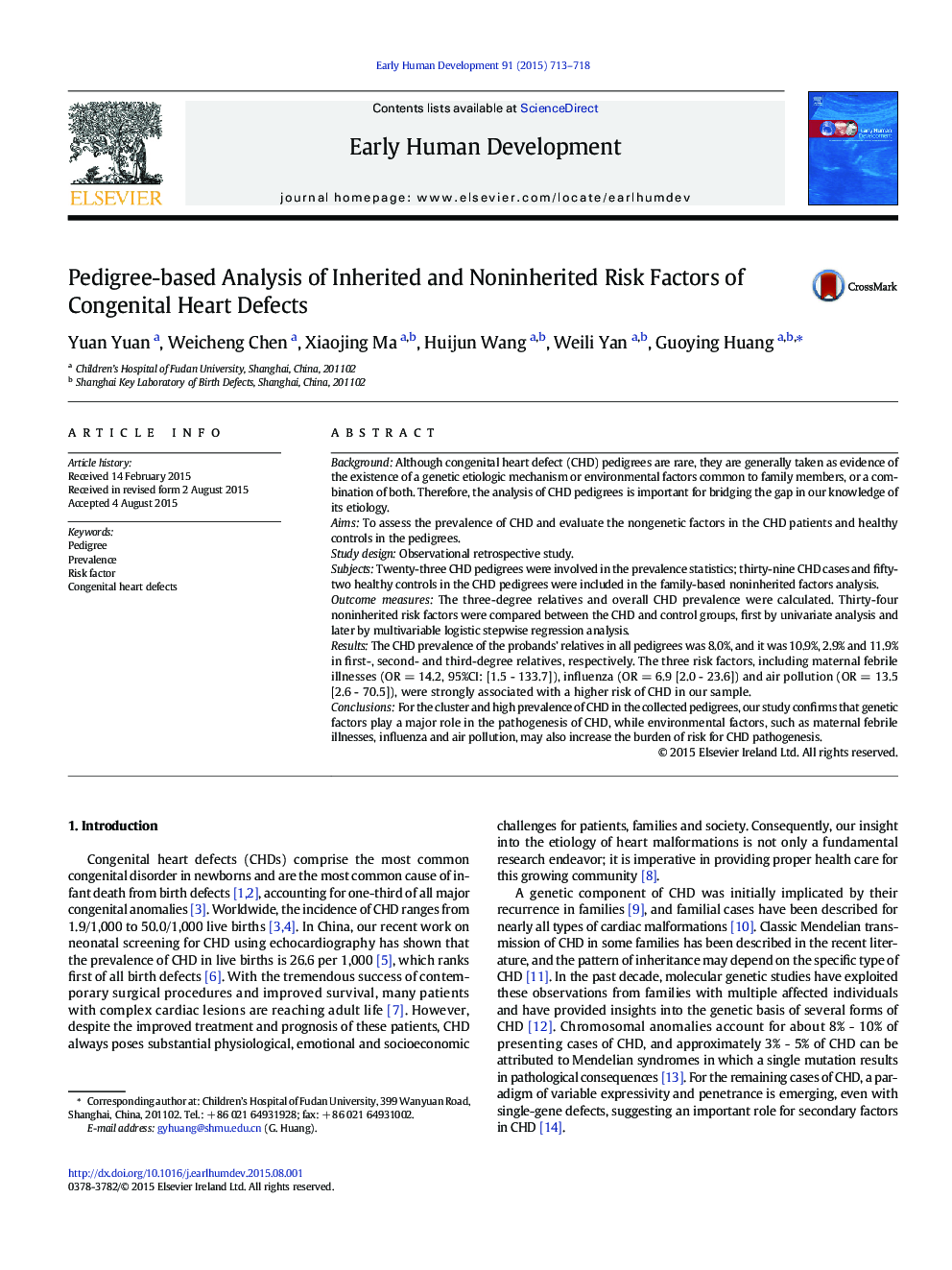| کد مقاله | کد نشریه | سال انتشار | مقاله انگلیسی | نسخه تمام متن |
|---|---|---|---|---|
| 3916706 | 1252069 | 2015 | 6 صفحه PDF | دانلود رایگان |
• We demonstrate high prevalence of CHD in probands’ three-degree relatives.
• Maternal febrile illnesses, influenza and air pollution increase the risk for CHD.
• We suggest coupling the assessment of both prenatal noninherited risk factors and genomic research of CHD pedigrees.
BackgroundAlthough congenital heart defect (CHD) pedigrees are rare, they are generally taken as evidence of the existence of a genetic etiologic mechanism or environmental factors common to family members, or a combination of both. Therefore, the analysis of CHD pedigrees is important for bridging the gap in our knowledge of its etiology.AimsTo assess the prevalence of CHD and evaluate the nongenetic factors in the CHD patients and healthy controls in the pedigrees.Study designObservational retrospective study.SubjectsTwenty-three CHD pedigrees were involved in the prevalence statistics; thirty-nine CHD cases and fifty-two healthy controls in the CHD pedigrees were included in the family-based noninherited factors analysis.Outcome measuresThe three-degree relatives and overall CHD prevalence were calculated. Thirty-four noninherited risk factors were compared between the CHD and control groups, first by univariate analysis and later by multivariable logistic stepwise regression analysis.ResultsThe CHD prevalence of the probands’ relatives in all pedigrees was 8.0%, and it was 10.9%, 2.9% and 11.9% in first-, second- and third-degree relatives, respectively. The three risk factors, including maternal febrile illnesses (OR = 14.2, 95%CI: [1.5 - 133.7]), influenza (OR = 6.9 [2.0 - 23.6]) and air pollution (OR = 13.5 [2.6 - 70.5]), were strongly associated with a higher risk of CHD in our sample.ConclusionsFor the cluster and high prevalence of CHD in the collected pedigrees, our study confirms that genetic factors play a major role in the pathogenesis of CHD, while environmental factors, such as maternal febrile illnesses, influenza and air pollution, may also increase the burden of risk for CHD pathogenesis.
Journal: Early Human Development - Volume 91, Issue 12, December 2015, Pages 713–718
